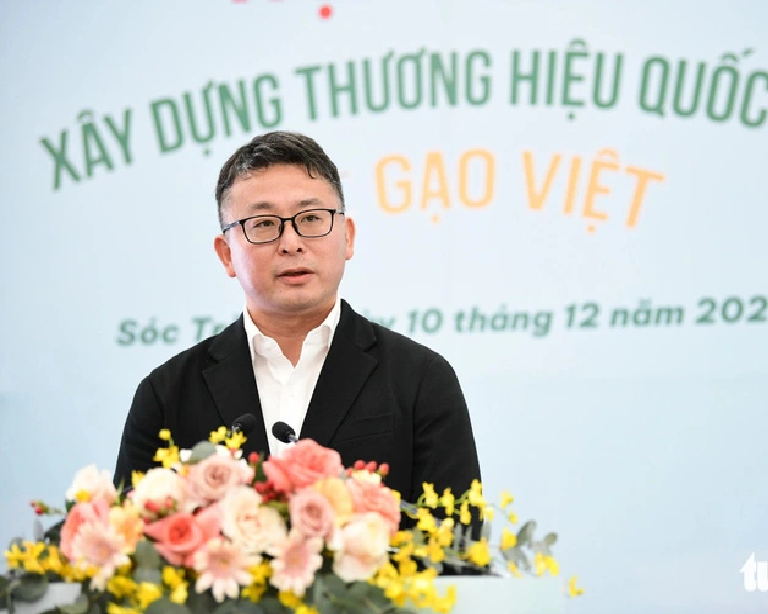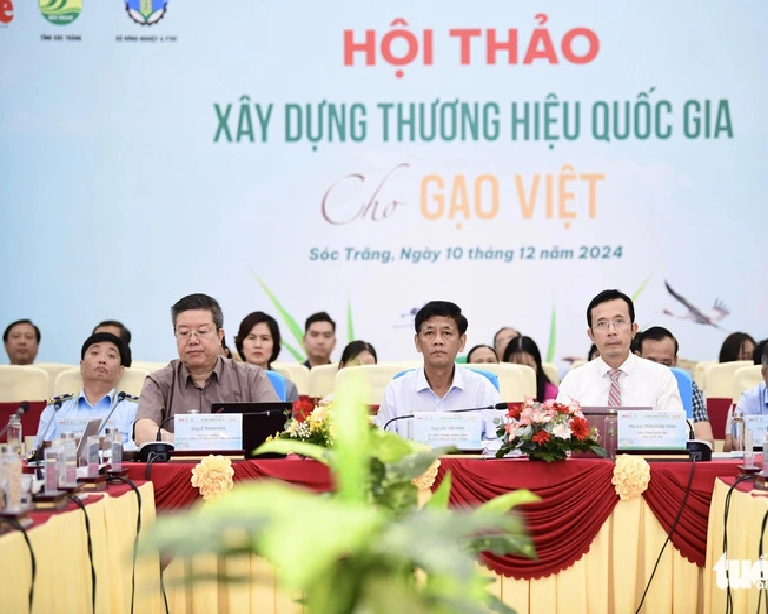Experts from Thailand and Japan offered lessons in rice branding to their Vietnamese counterparts, emphasizing the necessity of Vietnam rice trademark registration, during a seminar held in Soc Trang Province earlier this week.
At the seminar on Vietnam national rice branding on Tuesday, Sakda Sinives, an advisor to A.S Power Green Co. Ltd., stressed the importance of creating a rice trademark to serve as a symbol for consumer confidence and producer credibility.
Trademarks can help improve the competitiveness of Vietnamese products on the global market, the Thai expert added.
Product trademarks are among the most critical factors of developing brand identity. Once brands are successfully built, customers may trust the product quality and decide to buy them based on their names.
Producers should also identify specific target customers for each of their products, Sinives advised.
Sinives pointed out nine key factors in branding, including brand identity, relevance to target customers, trademark protection registration possibility, expansion possibility, product connection, logo and slogan integration, feedback collection, marketing plans, and brand sustainability.
He recommended choosing special brand names compared with rivals. The names should not be longer than three syllables so that customers can easily keep them in mind.
|
|
| Koji Takeuchi, CEO of Yamabun Farm Co. Ltd. in Japan, speaks at a seminar on Vietnam national rice branding in Soc Trang Province, southern Vietnam, December 10, 2024. Photo: Quang Dinh / Tuoi Tre |
Meanwhile, Koji Takeuchi, CEO of Yamabun Farm Co. Ltd., retold the story of launching his idea two years earlier.
Hoping to make other people aware of the fruits grown in his hometown, Yamagata, he returned to Japan from Vietnam and developed a 30-hectare farm for rice, cherry trees, peaches, and apples.
In the beginning, it was mostly his family which was involved in the production process. During peak times, he had to hire three or four more additional workers.
His company’s philosophy is to touch consumers’ hearts with safe, high-quality products.
To develop and commercialize the Tsuyahime specialty rice brand, Takeuchi pays attention to choosing rice varieties, studying customers’ tastes, product prices, and packaging.
Tsuyahime means 'shining princess' in Japanese. It describes the glassiness of cooked rice.
Yamagata has issued standards for Tsuyahime rice production, including those for area, cultivation process, producer certification, and rice quality, Takeuchi informed.
Japan also provides comparisons of rice products and recommendations on dishes that are best paired with each type of rice.
It also gives instructions on how to cook rice to ensure its deliciousness.
Tsuyahime is advertised as delicious after cooking and even when cold, Takeuchi said.
He added that the Japanese government and enterprises have developed and complied with rice production standards to maintain and improve their reputation for rice quality.
They have promoted rice products while dealing with fake produce and collecting feedback from customers.
|
|
| A seminar on Vietnam national rice branding was held in Soc Trang Province, southern Vietnam, December 10, 2024. Photo: Quang Dinh / Tuoi Tre |
Tuoi Tre (Youth) newspaper coordinated with the Ministry of Agriculture and Rural Development and the administration in Soc Trang to hold the seminar, attended by over 150 businessmen, agency leaders, and local and international experts.
Like us on Facebook or follow us on Twitter to get the latest news about Vietnam!
















































